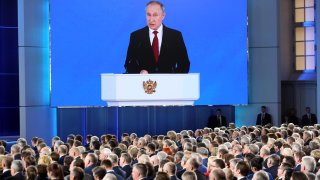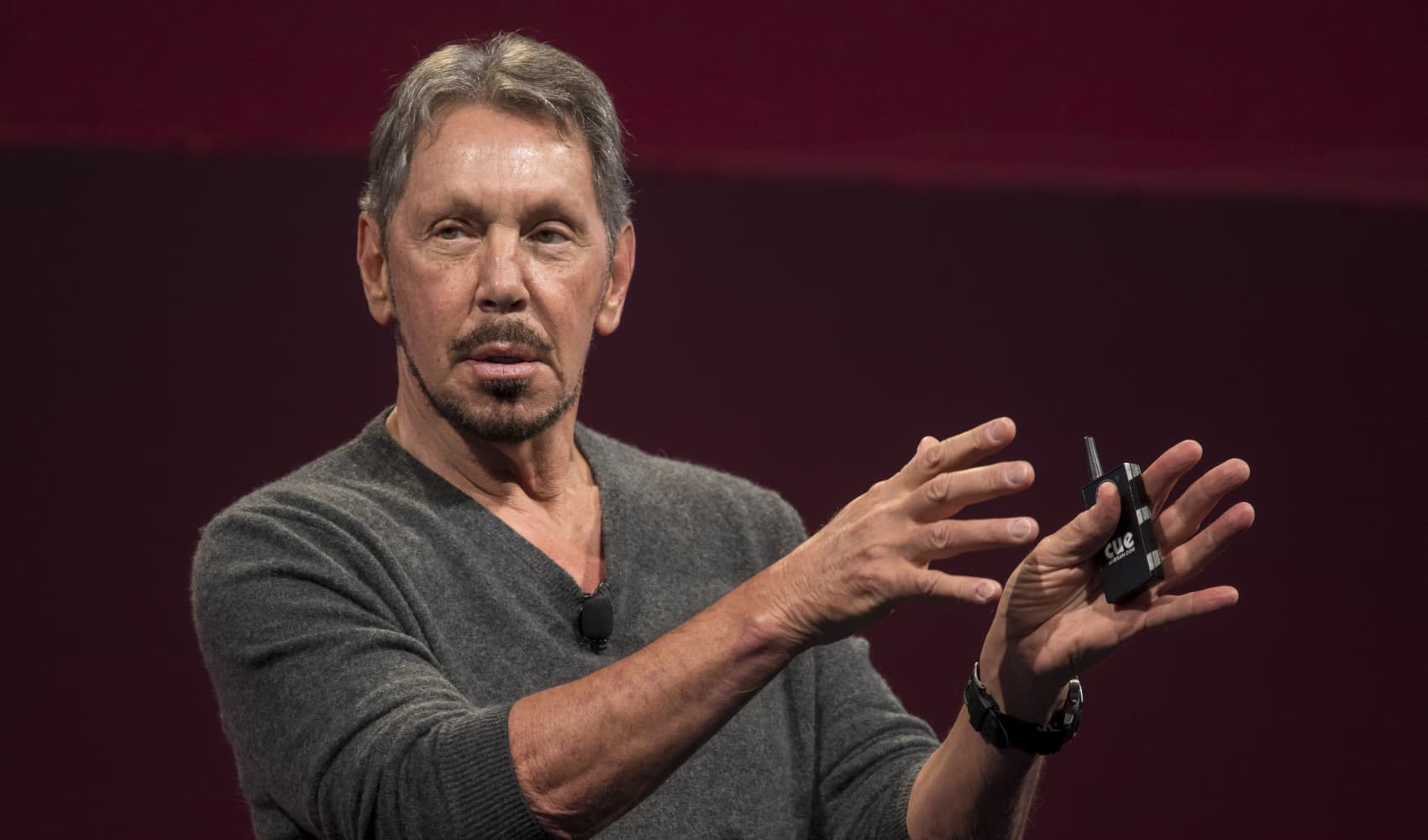
- Russian President Vladimir Putin gave his annual State of the Nation address Wednesday.
- The speech came amid reports that Russian troops are massing at the border with Ukraine.
- Also, Putin critic Alexei Navalny, on hunger strike in a Russian prison, has become dangerously ill and moved to a prison hospital.
Russian President Vladimir Putin delivered his annual State of the Nation address on Wednesday amid growing tensions with Ukraine and a hunger strike by dissident Alexei Navalny.
In the last week, there have been further reports that Russian troops are massing at the border with Ukraine, potentially preparing for military action.
Navalny, on hunger strike in a Russian prison, has become dangerously ill and has been moved to a prison hospital. The news prompted warnings from the U.S. that there would be "consequences" if Russia allows Navalny to die in jail.
Get San Diego local news, weather forecasts, sports and lifestyle stories to your inbox. Sign up for NBC San Diego newsletters.
In addition, Russia has been accused of orchestrating an attack on a Czech armaments dump in 2014, with the Czech Republic expelling 18 Russian diplomats this week. Russia denies that two of its military intelligence agents — the same men believed to have carried out a nerve agent attack on a former spy in Britain in 2018 — carried out the Czech attack, but the news has nonetheless added to the negative news flow around Putin's Russia.
Last week, the U.S. imposed more sanctions on Russia over 2020 election interference, a cyberattack on U.S. government and corporate networks, its annexation and occupation of Ukraine's Crimea, and human rights abuses.
Money Report
The address covered a wide range of topics, from the economy and defense to the environment and taxation. The coronavirus pandemic was on the agenda, too, with the virus hitting the country hard over the past year.
Putin has often used the address to make major policy announcements but on Wednesday, he reiterated a warning to the West to not provoke his country, promising a swift retaliation against anyone who crossed "red lines."
Moscow will respond "harshly," "quickly" and "asymmetrically" to foreign provocations, he said, according to a Reuters translation.
Ukraine
Close watchers of Russia are particularly perplexed by reports that the country has been massing troops at the Ukraine border, with the EU's foreign affairs chief estimating on Tuesday the size of the deployment to be 100,000 troops.
"Only last week military analysts were playing down the size of the Russian deployment but it now looks pretty sizeable," Timothy Ash, a senior emerging market strategist at BlueBay Asset Management, said in a note Tuesday.
"(You've) got to ask yourself why Putin feels the need to put such a large force 'in theatre' as it goes a lot further than sabre rattling. The deployment is bigger than 2014 when Russia annexed Crimea and invaded Donbas — let's not forget that. Why bother unless something serious is actually planned?," he asked.
Ash questioned what Putin's strategic objectives could be in Ukraine, a country with whom Russia has had tense relations ever since its 2014 annexation of Crimea.
"Is that securing water supplies for Crimea, (a) land bridge to Crimea, or giving Ukrainian forces such a beating that the government in Kyiv sues for a peace which gives Russia lasting strategic dominance over Ukraine?," Ash asked.
Navalny
Putin made no mention of Navalny in his speech as protests began, coinciding with the president's address.
Two of Navalny's closest allies were arrested Wednesday: Lyubov Sobol, one of the faces of Navalny's popular YouTube channel, and Kira Yarmysh, his spokeswoman, were detained in Moscow, their lawyers said, according to Reuters.
Demonstrations were called to take place on Wednesday by Navalny's team in protest at the 44-year-old activist's treatment in prison.
Navalny was moved to a prison hospital on Monday as his health deteriorated during a hunger strike he has staged as a protest against his treatment in prison. He has said he has been denied urgent medical treatment, a claim denied by the Russian authorities.
Navalny was sentenced him in February to more than two years for parole violations, charges he said were politically motivated.
At the weekend, his doctor's warned that Navalny was in danger of a heart attack or kidney failure. The physicians had not been able to visit Navalny in prison but said medical tests provided by his family showed he was dangerously ill and "could die at any moment."
The U.S. administration has warned the Russian government to not let Navalny die in custody, adding that there will be "consequences."
Last summer, Navalny was medically evacuated to Germany from a Russian hospital after he was poisoned by a chemical nerve agent. The German government said toxicology reports showed "unequivocal evidence" that Navalny was exposed to a nerve agent which was in the family of Novichok, which was developed by the Soviet Union.
Toxicology tests conducted in France and Sweden also came to the same conclusion. The Kremlin has repeatedly denied having a role in Navalny's poisoning.
Read more: U.S. disturbed over imprisoned Kremlin critic Navalny's deteriorating health
Verisk Maplecroft's Daragh McDowell noted that tensions between Russia and the West have been steadily ratcheting up since the start of the year, driven by the Biden administration's more confrontational policy and the return of Navalny.
"Navalny's imprisonment, and the rapid deterioration of his health, has both galvanised Russia's domestic opposition and become an international PR headache for the Kremlin, with European governments under pressure to take a harder line towards Moscow," he said.






